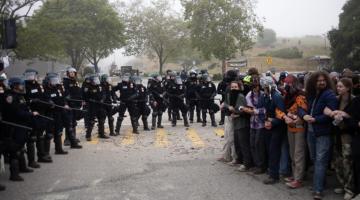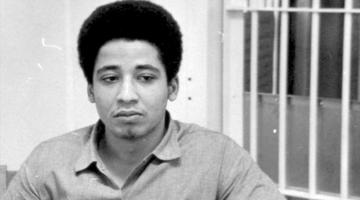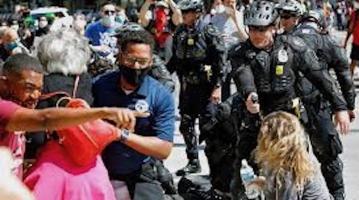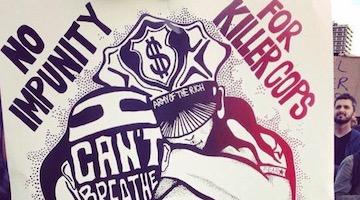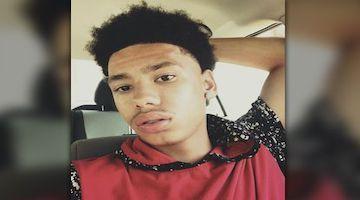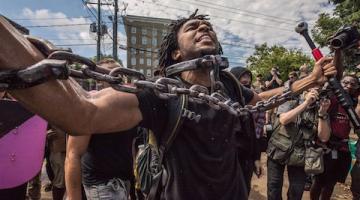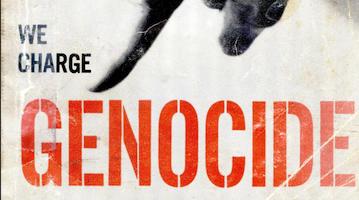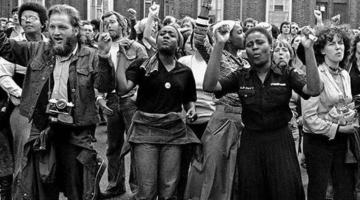When cops create lists of kids “at risk” of falling into crime, it becomes a self-fulfilling indictment.
“’Predictive policing’ funnel individuals into the system without their knowledge and with little due process.”
Putting kids on a police watchlist is the exact opposite of how to handle signs that a student may need help.
In a disturbing example of predictive policing taken to extremes, a county police department has created a secret list of kids it thinks could “fall into a life of crime.” According to documents revealed by the Tampa Bay Times, students can be labeled as “at-risk youth who are destined to a life of crime” if they get a D in a class, have three absences in a quarter, get a single discipline referral, or have experienced childhood trauma.
If a list like this existed when I was a teacher in East Baltimore, the vast majority of my students would have been placed on it — not because they were likely to develop into “prolific offenders,” as the Pasco County Sheriff Office’s intelligence manual suggests, but because the combined forces of concentrated poverty, institutionalized racism, and decades-long disinvestment make hitting at least one of these indicators almost unavoidable.
The sheriff’s office uses data from the school district, the state’s Department of Children and Families, and its own records to categorize certain children as “at risk of becoming criminals.” The school district has defended the policy, but privacy experts have challenged the legality of the practice, noting that federal law allows schools to share student data with police only under very specific circumstances. Additionally, misuse of sensitive data can put children at risk of being unfairly targeted or impact their long-term trajectory if the designation follows them through the school system.
“The combined forces of concentrated poverty, institutionalized racism, and decades-long disinvestment make hitting at least one of these indicators almost unavoidable.”
In many ways, the Pasco program parallels law enforcement’s use of gang databases and predictive policing tools around the country. Gang databases have long been criticized for the subjective and overbroad criteria that funnel individuals — mostly Black and Latino men — into the system without their knowledge and with little due process.
The New York City Police Department, for example, can add someone to the city’s gang database if they are present at a “known gang location” and frequently wear colors that are associated with a particular gang. For individuals who live in an area with a local gang or crew presence, going to the neighborhood corner store and wearing the color blue can be considered sufficient evidence for inclusion. A person can be added to the database without being directly associated with criminal activity and it’s generally almost impossible to find out if you’ve been added or petition for removal.
The Brennan Center and other advocates have cautioned law enforcement against relying on vague and biased indicators to forecast crime, and those concerns are especially salient when such tactics draw on intimate student data to implicate minors.
“Going to the neighborhood corner store and wearing the color blue can be considered sufficient evidence for inclusion in the database.”
The Pasco sheriff’s list relies on indicators that are overbroad to the point of being meaningless. Having just one of a multitude of markers — including receiving a disciplinary referral, low attendance, failing a class, violating the county’s youth curfew, and even being the subject of a custody dispute — can land a child on law enforcement’s radar. The police intelligence manual also suggests that having “low intelligence” or coming from “broken homes” are predictive factors in determining whether children will break the law.
Falling into any of these categories may warrant intervention, but that should come in the form of supportive services, not a potentially punitive label. Indeed, it’s not clear precisely what the sheriff’s office does with the list, as the office does not inform students or their parents if they’ve been added and there’s no clear path to appeal or request removal.
However, with 30 school resource officers responsible for overseeing nearly 30,000 students across the county, it seems likely that children flagged by the list will be easy targets for school police — the one group with which the sheriff’s office is empowered to share the list. At the same time, research has shown that increased contact between students and school resource officers can result in higher rates of arrests even for minor, non-criminal offenses. As the intelligence manual directs officers to leverage their relationships with students to find “seeds of criminal activity,” it’s also possible that children on the list will be questioned about or used to surveil the communities they come from.
“Having ‘low intelligence’ or coming from ‘broken homes’ are predictive factors in determining whether children will break the law.”
Furthermore, many of the factors that warrant placement on the list are more likely to capture marginalized students than their more privileged peers. According to the U.S. Department of Education, Native American, Black, and Hispanic students are more likely to miss three weeks of school or more compared to their white peers. Students with disabilities are about 50 percent more likely to be chronically absent than students without disabilities. When it comes to school discipline, Black students tend to be disciplined more frequently and severely for the same misbehaviors as White students. Students with disabilities face disproportionate punishment as well.
The Pasco County list also draws on child welfare data to find out which students have experienced childhood trauma, another factor that impacts low-income youths at higher rates. By relying on data that places focus on vulnerable, already-overpoliced populations to make predictions about future criminal activity, the Pasco County list may perpetuate existing disparities and reinforce the school-to-prison pipeline.
The consequences of labeling a student “likely criminal” could be significant. Another predictive policing effort in Pasco County that relied on unspecific data to generate a list of people “likely to break the law” resulted in police harassing a 15-year-old, issuing a $2,500 fine to the mother of a teenage target for keeping chickens in the backyard, and arresting another target’s father after they saw a 17-year-old smoking a cigarette through the house window.
“Data focus on vulnerable, already-overpoliced populations.”
The program gave deputies a greenlight to continuously monitor and hassle targets, many of whom were juveniles with low-level past offenses. Although predictive tools like gang databases and the Pasco County list are touted by law enforcement as ways to keep communities safe, they often sweep up and endanger vulnerable individuals in the process.
In the wake of George Floyd’s murder, activists have doubled down on their calls to remove law enforcement from public schools and major districts have cut their contracts with local police departments. Meanwhile, the Pasco County Sheriff’s Office is moving in the wrong direction by putting students on a watchlist because of their ordinary though all-too-commonplace struggles. Pasco County and all schools must let students be students. If they fail, if they’re absent, if they face adversity outside of the classroom, bring in support — teachers, counselors, social workers, and family — not the police.
Priyam Madhukar is the special assistant to the co-directors of the Liberty & National Security Program. Prior to joining the Brennan Center for Justice, she served as an educator in Baltimore through Teach For America. In Baltimore, Madhukar taught social studies for two years, served on her school's Instructional Leadership Team, and helped reshape the district's U.S. history curriculum to focus more on the experiences of her students as well as other historically marginalized communities.
This article previously appeared on the site of Brennan Center for Justice.
COMMENTS?
Please join the conversation on Black Agenda Report's Facebook page at http://facebook.com/blackagendareport
Or, you can comment by emailing us at comments@blackagendareport.com


